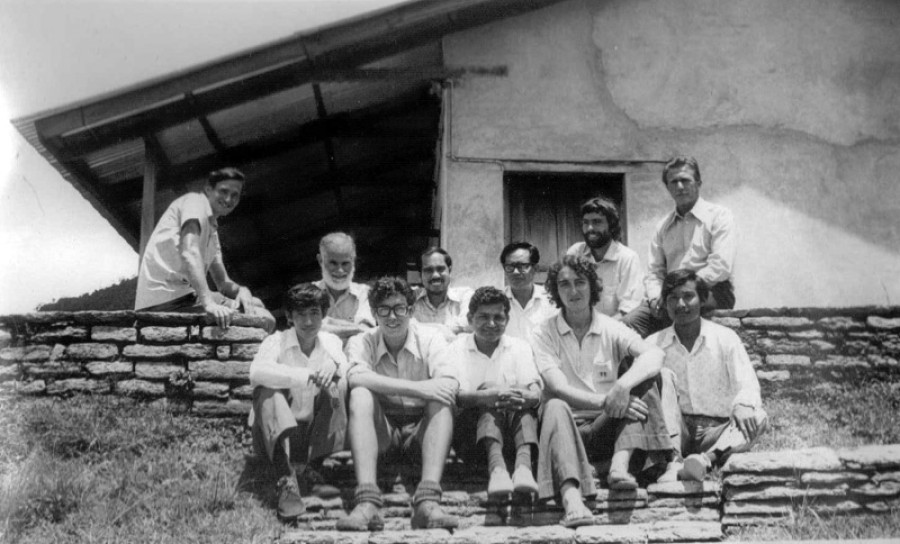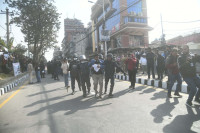Opinion
Development achievements
In this bicentenary year, the exhibition Hatemalo helps us celebrate the things Nepal and UK have achieved together
Richard Morris & Gail Marzetti
It was humbling to be welcomed so warmly in Gamgadi, Mugu last month. We were in Mugu to see the results of the UK’s development partnership in the area. It was fascinating to meet so many people whose lives had been touched by the work. We will both remember in particular the women involved in the community development programme, whose dynamism and confidence were both moving and inspiring.
Looking back
The UK-Nepal development partnership with the Ministry of Finance, which aims to reduce extreme poverty, has been a key part of our countries’ relationship since 1961.
Nepal and the UK celebrated two hundred years of friendship in March 2016. In this bicentenary year, the UK Department for International Development in Nepal has been looking back at this partnership. The results are presented in the exhibition Hatemalo (hand-in-hand): Celebrating the Nepal and UK Development Partnership—50 years in photographs.
The purpose of the exhibition is to recognise, learn from, and celebrate the development achievements of our two countries working together to reduce extreme poverty in Nepal over those 50 years. In DFID, as in many organisations, we spend much of our working day focused on daily challenges. It is hard to find the time to learn what the past can teach us. The exhibition has allowed us to do that—and also to celebrate the things we have achieved together.
The achievements
These successes include the support for the construction of over 1,300km of roads and the maintenance of many more since 1970s. Every evaluation shows that their impact, particularly on the economy and livelihoods, has exceeded our expectations. Every pound spent on road building and maintenance has yielded huge economic returns. So we will continue to invest in roads. We will also be offering support for disaster risk reduction, both in preparation for natural disasters such as the earthquake that hit last year and for climate resilience. Spending money upfront to be ready for a disaster saves lives, assets and money.
The Ministry of Health has made huge gains, especially in child and maternal mortality. No other country has achieved so much at similar levels of average incomes. We are proud to have been supporting the ministry for the last 17 years as it attained its goals. Community forestry was pioneered by Nepal’s foresters and is a successful model followed across the world because it works. The result here is a huge increase in forest cover from 25 percent in the 1970s to over 45 percent today.
Building a vibrant economy has and will continue to be a focus for DFID. From pioneering development work in remote districts in collaboration with the Tourism for Poverty Alleviation Programme, through helping young people acquire market relevant skills, to more recent support to the Investment Board of Nepal, we remain committed to helping to create jobs and improve livelihoods.
We will continue to conduct a range of work supporting women and girls. The recent Girl Summit organised for the very first time in the country is case in point. You cannot develop a nation without developing its women and girls, who make up half the population.
To be clear, the UK and DFID are not taking the credit for these achievements. It is the achievements of the government and the people of Nepal that we are celebrating. What DFID did was to have the privilege to come in with resources to get behind Nepal’s good ideas and support development.
You can learn about all this work, and more of what we have been doing together, at the exhibition which is on display, free of charge, at the Nepal Art Council until May 22, before being displayed in London in the autumn. It also helps demonstrate, as we learned in Mugu, what a difference this work has made to many individual Nepali lives.
And, in this bicentenary year, it provides further evidence of the great relationship between our countries—and the strong foundation this gives us for the future.
Morris is the British Ambassador to Nepal; Marzetti is the head of DFID in Nepal




 7.12°C Kathmandu
7.12°C Kathmandu










